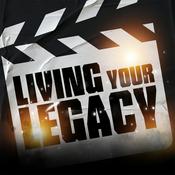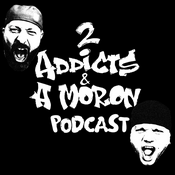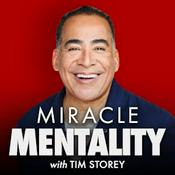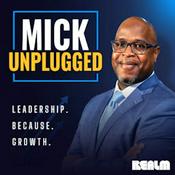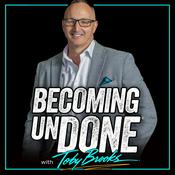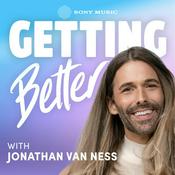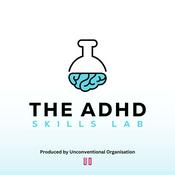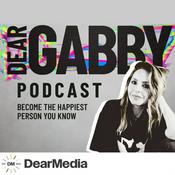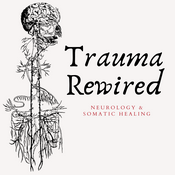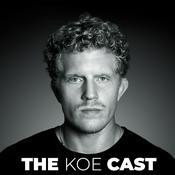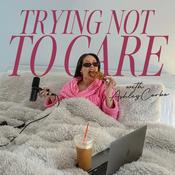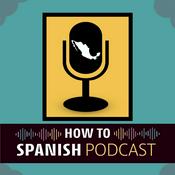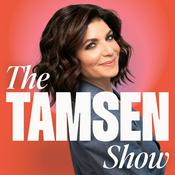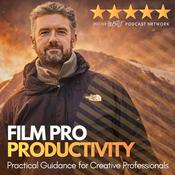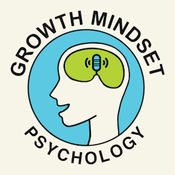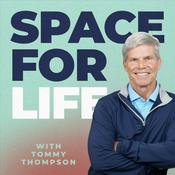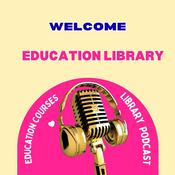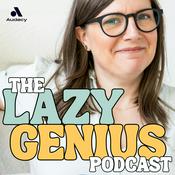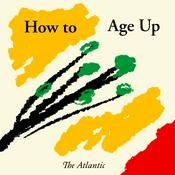Passing your National Licensing Exam
Linton Hutchinson, Ph.D., LMHC, NCC
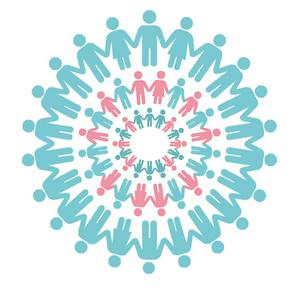
Latest episode
159 episodes
- Send us a text
What if the fastest way to change a family pattern is to move your feet and say fewer words? We open the door to family constellation therapy with a practical walkthrough of the exact techniques we use to reveal hidden loyalties, restore order, and free up energy for the present. Instead of rehashing history, we map it in space, listen to the body, and let truth do the heavy lifting.
We start with the representative technique, arranging people or markers to stand in for family members so entanglements become visible. As we shift positions—closer, further, turned toward or away—you’ll hear how clients feel distinct sensations and emotions based on where they stand. That felt sense is our compass. From there, we dive into embodied perspective-taking and show why stepping into another’s place can surface loyalty conflicts, hierarchy issues, and exclusions that talking rarely touches.
Then we explore sculpting: using posture, angle, and distance to make closeness and power dynamics unmistakable. A single turn of the shoulders can reveal an old hurt; three steps can signal a cut-off bond. We demonstrate how small edits to the sculpt can bring relief without forcing reconciliation. Finally, we lean into ritual sentences—simple phrases like “I honor your fate” and “I leave what belongs to you with you”—that acknowledge systemic truths. These are not affirmations; they are precise acknowledgments that complete interrupted movements and return burdens to their rightful place.
By the end, you’ll understand how to track micro-shifts in breath, gaze, and posture to know when a change is real, and how to integrate the work with small, respectful actions at home. If you’re curious about evidence-informed, embodied ways to untangle family dynamics and create more space for love, work, and creativity, this conversation offers clear steps you can try. If it resonates, subscribe, share this with someone who’d benefit, and leave a review so more listeners can find the show.
If you need to study for your national licensing exam, try the free samplers at: LicensureExams
This podcast is not associated with the NBCC, AMFTRB, ASW, ANCC, NASP, NAADAC, CCMC, NCPG, CRCC, or any state or governmental agency responsible for licensure. - Send us a text
Ever wonder why some clients carry guilt or grief that doesn’t match their personal history? We take a clear, practical look at family constellation therapy and how hidden orders and loyalties can create entanglements that ripple through generations. Drawing on systemic principles—belonging, honoring those who came before, and balance in giving and taking—we show how symptoms like chronic anxiety, intimacy struggles, and repeating relationship patterns can be the system’s attempt to restore equilibrium.
We walk through the full arc of the work in a way clinicians can use right away. Preparation sets the frame: mapping family structure, pivotal events, and readiness. The constellation phase brings the system into space through representatives or objects, allowing unconscious dynamics to surface as felt experience. Integration then anchors the shifts over time, translating insight into new boundaries, steadier relationships, and a grounded sense of place in the family. Throughout, we keep a phenomenological stance—following what arises in the room rather than imposing a predefined story.
You’ll hear concrete tools you can apply in solo sessions or groups: spatial representations that make the invisible visible, movement interventions that restore closeness or distance, ritual elements that honor the excluded, and language that acknowledges hard truths and clarifies generational lines. We highlight how to assess for disproportionate symptoms, what progress looks like in everyday life, and why systemic resolution—not mere symptom suppression—leads to durable change.
If you’re preparing for a licensing exam or refining your systemic toolbox, this conversation offers a grounded guide to seeing clients in context and supporting change that holds. Subscribe, share with a colleague who loves systemic work, and leave a review with one insight you’re taking into practice.
If you need to study for your national licensing exam, try the free samplers at: LicensureExams
This podcast is not associated with the NBCC, AMFTRB, ASW, ANCC, NASP, NAADAC, CCMC, NCPG, CRCC, or any state or governmental agency responsible for licensure. - Send us a text
What if the fastest way to help a client change is to make safety unmistakable? We take you from Bowlby’s core ideas to concrete moves you can use tomorrow, showing how early bonds shape adult relationships, emotion regulation, and the choices people make under stress. Instead of memorizing terms for the licensure exam, we connect secure base behavior—proximity seeking, separation distress, and exploration—to what you can see and name in session.
We walk through the major attachment styles—secure, anxious preoccupied, dismissive avoidant, and fearful avoidant—and translate them into lived clinical patterns like protest, withdrawal, and deactivation. Then we map the treatment arc inside attachment‑based therapy and ABFT: build a strong alliance, explore injuries individually, invite caregivers into structured enactments, and consolidate gains across daily contexts. Along the way, we show how corrective emotional experiences, emotion labeling, mindfulness, and reflective functioning create new relational memories that hold under pressure.
Assessment matters for both practice and exams, so we cover the Adult Attachment Interview, Experiences in Close Relationships, the Relationship Scales Questionnaire, and how Strange Situation findings inform work with children. We also share pragmatic progress markers—more direct bids for support, quicker recovery after ruptures, and increased capacity to set boundaries without distancing. The throughline is simple and powerful: when clients experience dependable attunement, they risk new ways of relating, and resilience grows.
If this helped you connect the dots between theory and practice, follow the show, share it with a study buddy, and leave a quick review. Tell us which attachment‑based technique you’ll try this week—we’d love to hear what changes in the room.
If you need to study for your national licensing exam, try the free samplers at: LicensureExams
This podcast is not associated with the NBCC, AMFTRB, ASW, ANCC, NASP, NAADAC, CCMC, NCPG, CRCC, or any state or governmental agency responsible for licensure. - Send us a text
A ceiling fan that rattles and wobbles shouldn’t be fixed with more power—it needs balance. We take that same idea to focus and studying, showing how attention breaks down when life pulls unevenly on your time, energy, and commitments. Instead of forcing willpower, we walk through a kinder reset: recognizing what your current schedule protects, carving intentional time for learning, and using a short journaling practice to uncover the real reasons you resist prioritizing study.
We share practical moves that calm the mental “clank.” Start by mapping priorities without judgment, then note the invisible bargains you’ve made—late nights, open-ended messages, overstuffed evenings—that throw your days off balance. With that awareness, you can rebalance the “blades” of your life: consolidate communication windows, anchor a 60–90 minute deep-work block, and adjust one recurring commitment to reclaim quiet. You’ll hear how protecting energy—sleep, food, movement—stabilizes attention better than any hack, and how small friction fixes, like a starting ritual and a next-step note, make it easier to return to the work.
By the end, you’ll see focus not as a moral test but as a design outcome. When your commitments fit the season you’re in, studying stops feeling like a fight and starts moving with a smooth hum. If you’re ready to trade strain for steady progress, tune in and rebuild balance with intention. Subscribe for more practical mindset tools, share this with a friend who’s stuck in “try harder” mode, and leave a review telling us which small change you’ll make this week.
If you need to study for your national licensing exam, try the free samplers at: LicensureExams
This podcast is not associated with the NBCC, AMFTRB, ASW, ANCC, NASP, NAADAC, CCMC, NCPG, CRCC, or any state or governmental agency responsible for licensure. - Send us a text
If you need to study for your national licensing exam, try the free samplers at: LicensureExams
This podcast is not associated with the NBCC, AMFTRB, ASW, ANCC, NASP, NAADAC, CCMC, NCPG, CRCC, or any state or governmental agency responsible for licensure.
More Education podcasts
Trending Education podcasts
About Passing your National Licensing Exam
Getting licensed can open up incredible opportunities, but the exam can seem daunting. Our podcasts make passing more achievable and even fun. Dr Hutchinson and Stacy’s energy and passion for this content will get you motivated and confident. We break things down in understandable ways - no stuffiness or complexity and focus on the critical parts you need so your valuable study time counts. You’ll come away feeling like, “I can do this!” Whether it’s nailing down diagnoses, theoretical approaches, or applying ethics in challenging situations, we help you get into a licensed mindset. Knowledge domains we cover in these podcasts include:Professional Practice and EthicsIntake, Assessment, & DiagnosisAreas of Clinical FocusTreatment PlanningCounseling Skills and InterventionsCore Counseling AttributesAnd, of course, the DSM-5-TR. If you listen, you might surprise yourself at how much you absorb and enjoy it along the way. Take that first step – you’ll gain confidence and valuable skills and feel confident getting ready for your licensing exam!
Podcast websiteListen to Passing your National Licensing Exam, Life Kit and many other podcasts from around the world with the radio.net app

Get the free radio.net app
- Stations and podcasts to bookmark
- Stream via Wi-Fi or Bluetooth
- Supports Carplay & Android Auto
- Many other app features
Get the free radio.net app
- Stations and podcasts to bookmark
- Stream via Wi-Fi or Bluetooth
- Supports Carplay & Android Auto
- Many other app features


Passing your National Licensing Exam
Scan code,
download the app,
start listening.
download the app,
start listening.


